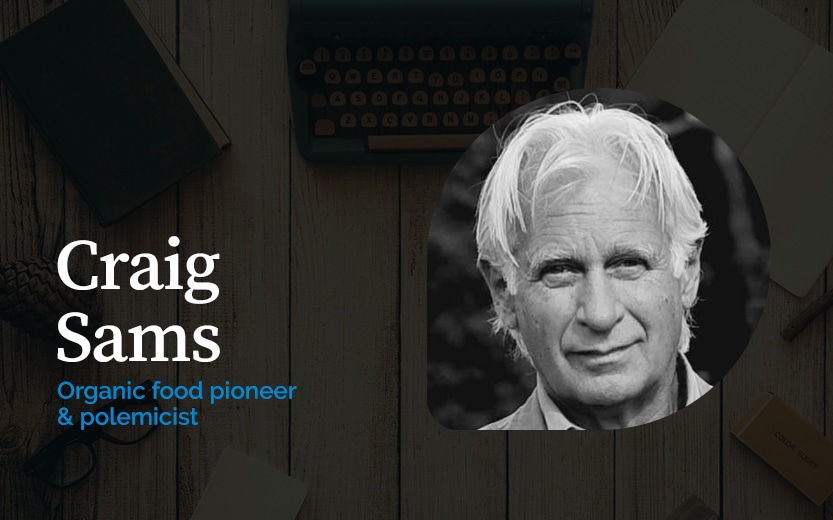Who needs big organisations that are inherently inefficient in this age of smartphones and smart farmers? The future is small, the future is beautiful … and resilient
The Royal Scottish Geographical Society, in their wisdom, decided to bestow their Shackleton Medal (for Leadership and Citizenship) on me, and my wife Jo Fairley. The event was in Perth, traditionally known as the ‘Fair City’ but also a registered Fairtrade City. Supporters poured into the Perth Concert Hall and we met two schoolgirls whose school curriculum included writing an essay about Justino Peck, a personal friend of ours in Belize. Justino led the Toledo Cacao Growers Association in 1993 from near collapse to a vibrant cooperative built on supplying organic cacao to Green & Black’s for Maya Gold. Arguably he should have been awarded the Shackleton Medal – he moved heaven and earth to get organic cacao production up going in Belize.
What sank in as we prepared our speech was how much the world has changed. In 1993 British aid advisors and agricultural experts from the FAO (Food and Agriculture Organisation of the United Nations) urged the cocoa farmers to ignore us, warning that if they went organic and abandoned chemicals their cocoa orchards would be wiped out and they’d never be able to repay the money they’d borrowed to buy hybrid seeds and chemicals in the 1980s. Justino advised the farmers to trust us and go organic – most farmers don’t like spending money on chemicals anyway.
In the 1960s there had been a massive move towards big industrial scale cocoa plantations to ‘modernise’ cocoa production. 420,000 hectares of cacao were planted in Malaysia and over 200,000 in Bahia province of Brazil. Now there’s fewer than 20,000 hectares in Malaysia and even less than that in Bahia. What happened? Quite simply, the experts were wrong. They confidently gave crap advice that led to a huge waste of money. Big plantations planted cacao trees 8 feet apart with no shade trees (instead of 16 feet apart and with shade trees. Teams of workers were paid by the hour to harvest and ended up picking under-ripe pods to meet their targets. The result was cacao that was rubbish for anything but the cheapest chocolate. The Malaysians sent teams to Ghana to find out that complexity of flavour comes when you have lots of independent farmers growing cacao and picking it only when it’s ripe. In Brazil a disease called Witches Broom spread like wildfire in 1989, the fungicides failed to work and 90% of the trees in the Bahia region died. An awful lot of money, human effort and heartbreak went into this misguided scheme to ‘modernise’ cocoa farming. A lot of women got cancer or had deformed births from spraying chemicals into the underside of the trees. Some plantations wouldn’t give women jobs as backpack sprayers unless they could prove they’d been sterilised. Cheap food at what cost?
Now it’s all changed and all the chocolate companies are actively courting smallholder producers. Big is not beautiful, it’s a disaster. Tyre companies like Michelin want smallholders to plant rubber trees. Unilever want them to plant oil palm. The big plantations don’t work. Now everyone has to make nice to the smallholders. They have the whip hand and, organised into cooperatives, can command fair prices, supported by the Fairtrade Mark and other assurances.
The thinking behind depopulating the countryside was that all those peasants were needed to go and work in factory jobs, assembling computers and cars. Only robots now do the job cheaper. Apple’s new factory in Arizona will make computers in the USA again, but with very few jobs. But there’s no point in making stuff if nobody has the money to buy it. The independent smallholder farmers, getting fair prices for what they produce, will be an important market for manufactured goods.
What’s more, independent people who own their own business or land are the backbone of any representative democracy. They’re harder to push around.
Just look at what a mess ‘Big’ has got us in. Big farmers in the US and EU depend on subsidies for half their income – they’d go bust overnight without £400 billion each year of taxpayer support. Big supermarkets are struggling, squeezing suppliers for cash to prop up their flagging share price, while independent butchers, bakers and brewers and other small retailers are popping up all over the place.
“Just look at what a mess ‘Big’ has got us in. Big farmers in the US and EU depend on subsidies for half their income – they’d go bust overnight without £400 billion each year of taxpayer support. Big supermarkets are struggling, squeezing suppliers for cash to prop up their flagging share price”
EF Shumacher wrote Small is Beautiful – as if People Mattered and went on to be president of the Soil Association. Who needs big organisations that are inherently inefficient in this age of smartphones and smart farmers? The future is small, the future is beautiful…and resilient. Just look at the cacao example – it’s the same wherever you look.
 By Craig Sams
By Craig Sams
Organic food pioneer and polemicist
Craig Sams is Britain’s best known natural food pioneer. He is the founder of Green & Blacks, a former Soil Association chairman and the author of The Little Food Book.











